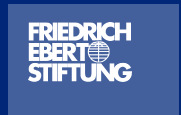Project Information
The ITF portal at the Library of the Friedrich-Ebert-Stiftung has documented the full texts of important print documents of the International Transport Workers' Federation (ITF) from its founding until 2006.
As often emphasised by member trade unions in their descriptions, the ITF is a global organisation in the truest sense of the word. It represents workers in the transport industry worldwide and supports their interests through global acts of solidarity. The ITF defends fundamental human and trade union rights and is strictly against any form of totalitarianism, aggression, and discrimination.
The ITF's support of German Democrats in their fight against Hitler remains an unforgettable historical moment. The collection and incorporation of print and manuscript sources from the ITF has therefore always been the focus of the Friedrich-Ebert-Stiftung with its library and archives.
The collection of ITF documents was greatly enhanced some time ago when Charline Dekens, the archivist in charge at the ITF, agreed to part with valuable holdings of old periodicals and to integrate them into an "active environment" in Bonn in depository archives. The periodicals which the ITF published in support of antifascist resistance between 1933 and 1945 are considered exceptionally important ("Swastika over Germany", "Fascism").
In a separately published list of holdings, the Library of the Friedrich-Ebert-Stiftung has documented all ITF periodicals that are found in its holdings and were acquired from various sources during the past few years. However, the ITF holdings received from the UK are considered the most valuable records.
Along with the collection of "conventional" documentation, a retro-digitalisation project was started at the library with the goal of publishing important historical periodicals and the minutes of congresses online to considerably increase the "visibility" of the ITF and its cultural records. This project could not have been realised without the support of the "ITF Flags of Convenience Campaign" by ver.di (the United Service Union of Germany) and its director Barbara Ruthmann. We would like to offer her special thanks for this.
Willy Buschak, closely associated with the library as a researcher and trade union official for many years, wrote the introductory text for the list of holdings in order to present the history, structure, and function of the ITF. His text is also important for the current project.
In the past few years, all parties involved have been confronted with the radical changes of an information society. All data is available on the Internet within a split second. Not only is current information immediately accessible; older sources have also been digitalised through considerable time and effort and placed online.
One matter is often forgotten: national and international trade union sources are generally excluded from large commercial and publicly-funded projects and are frequently not taken into consideration in major digitalisation projects. The reason is obvious: large state-run libraries have neglected collecting these sources for many decades; they lack the adequate holdings for digitalisation.
It is therefore important that institutions which feel obligated to preserve the cultural heritage of national and international trade union movements look after the cultural records of workers' organisations and also make this legacy visible. A "level playing field on the Internet" should be established, so to speak.
Digital editions of main sources have had a sustainable influence on the development of online encyclopaedias which are compiled collectively by a community of authors free of charge. Reference works on the Internet shape our opinions and prejudices. Trade unions and their history have faded almost imperceptibly into the "digital background". The sense and purpose of this portal is to reconcile these disadvantages. If this digital edition interests you to explore the consolidation of 594 trade unions in 136 countries with 5 million members, then it has fulfilled its purpose.
Rüdiger Zimmermann (Head of the Library of the Friedrich Ebert Foundation)



